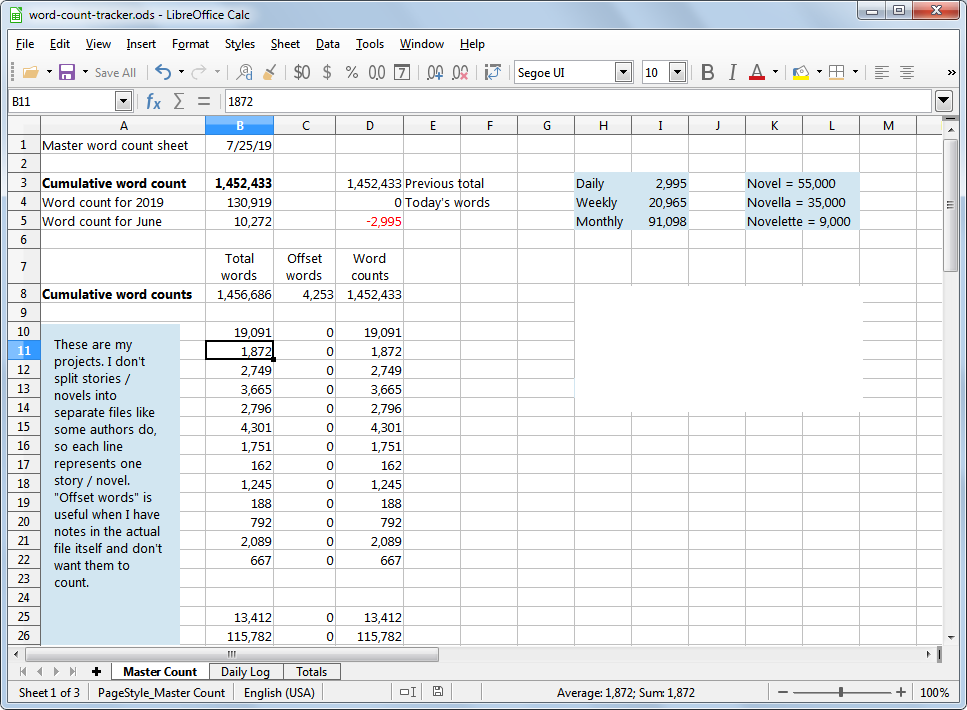I’ve been reading a lot lately about spreadsheets and inventories on another site.
Reading about the time involved in such a massive project has made me very happy that I’ve been tracking my stuff from the very beginning.
My main “publish-list” spreadsheet is up to ten tabs of data these days, and even includes all the sales links for my books on all the retailers I upload to. It’s been a handy thing to have.
I include so much in this spreadsheet that it’s difficult to think of something I can’t find there.
![]()


Within those tabs, I have a sheet called “File Updates” that tells me how long it’s been since I updated a file on any particular distributor site. It was a wake up call when I added that one because I ended up with a lot of titles in the “2000+ days” category, meaning all the back matter was way out of date.
I recently decided to tackle those old files and the way I’m doing it is to have a goal of updating at least one old file each week on an ongoing basis. That’s 52 files updated in a year, so that means I will have caught up within a year or so without adding in a lot of extra work or losing a lot of writing time.
(I have 34 titles at this point. Someday it will become more than a year’s worth of weeks of updates but I’ll worry about that when it happens.)
I also have a pretty streamlined EPUB generation system these days so this first year of updates will go a long way to making future updates take minutes instead of the hour or so it will take for some of these books now and will mean I should be able to easily update multiple books at a time instead of keeping it to one a week after this first round.
I update my publish-list spreadsheet every time I publish something or make a change that needs to be recorded. And keeping this thing updated is something I force myself to do every time I do anything that affects the data I keep up with. I don’t let myself off the hook on this, ever. It’s just too probable that something will slip through the cracks if I do.

